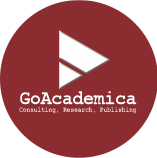ANALYSIS OF KNOWLEDGE MANAGEMENT APPLICATION IN PT. BANK MANDIRI, Tbk
DOI:
https://doi.org/10.15575/jim.v1i2.10305Keywords:
Knowledge Management, Bank.Abstract
Knowledge management as a process of accumulation of knowledge to improve organizational competitiveness is not only determined by the behavior of individuals and groups within the organization, strong desires and organizing also absolutely require organizational intervention to shape their desires and management. This study aims to determine and analyze the application of Knowledge Management in PT. Bank Mandiri, Tbk. This research uses a qualitative research approach. Data collection techniques are done through online interviews with Bank Mandiri employees. The results of the study revealed that the Bank Mandiri in the application of knowledge management (KM) is done by integrating into the corporate culture. Bank Mandiri awards MEA to employees who have a high learning culture, so many employees are competing to learn to obtain the MEA degree, with the high level of learning the employees will increase productivity, progress for the company and have the potential to create new knowledge. In addition, Bank Mandiri has also established a learning center for training for its employees. The company provides training to its employees in accordance with the work of each employee, then at the same place employees can share their knowledge with other employees, so that knowledge distribution is spread across all units. The culture of knowledge sharing at Bank Mandiri has become a culture for each of its employees, so that knowledge can be spread quickly and directed, which in turn can lead companies to become companies that can compete in the era of globalization.
References
Bambang Setiarso, (2009), Knowledge Management dan Penerapannya dalam Organisasi, Yogyakarta: Pustaka Ilmu
Barclay, R., and Murray, P. (1997). What is knowledge management? Knowledge Praxis. Retrieved May 17, 2004, from http://www.media-access.com/whatis.html
Beer, S. (1981). Brain of the firm. 2nd ed. New York: John Wiley & Sons.
Bennet, A., and Bennet, D. (2004). Organizational survival in the new world: the intelligent complex adaptive system. A new theory of the firm. Burlington, MA: Elsevier Science.
Boisot, M. (1998). Knowledge assets. Oxford: Oxford University Press.
Choo, C. (1998). The knowing organization. New York: Oxford University Press.
Grey, D. (1996, March). What is knowledge management? The Knowledge Management Forum. Available at http://www.km.forum.org/what_is.htm.
Iskandar. (2009). Metodologi Penelitian Kualitatif. Jakarta: Gaung Persada Press.
Jann Hidajat Tjakraatmadja dan Donald C Lantu, (2006), Knowledge Managemenet dalam konteks Organisasi Pembelajar, SBM ITB, Bandung
Kimiz, Dalkir, 2005, Knowledge Management in Theory and Practice. Jordan Hill, Oxford
McShane, L. Steven and Von Glinow, Mary Ann,(2005), Organizational Behavior, 3e, International Edition, McGRAW-HILL
Nonaka, I., and Takeuchi, H. (1995). The knowledge-creating company: how Japanese companies create the dynamics of innovation. New York: Oxford University Press
Ruggles, R., and Holtshouse, D. (1999). The knowledge advantage. Dover, N.H.: Capstone Publishers.
Von Krogh, G., and Roos, J. (1995). Organizational epistemology. New York: St. Martin’s Press.
Von Krogh, G., Roos, J., and Kleine, D. (1998). Knowing in firms: understanding, managing and measuring knowledge. London: Sage Publications.
Weick, K. (2001). Making sense of the organization. Malden, MA: Basil Blackwell
Wiig, K. (1993). Knowledge management foundations: thinking about thinking. How people and organizations create, represent and use knowledge. Arlington, TX: Schema Press
William R. King (2009), Knowledge management and Organizational Learning, Annals Of Information System, DOI 10.1007/978-1-4419-0011-1_2, © Springer Science+Business Media, LLC 2009, www.springer.com/series/7573
Downloads
Published
How to Cite
Issue
Section
Citation Check
License

This work is licensed under a Creative Commons Attribution-ShareAlike 4.0 International License.













